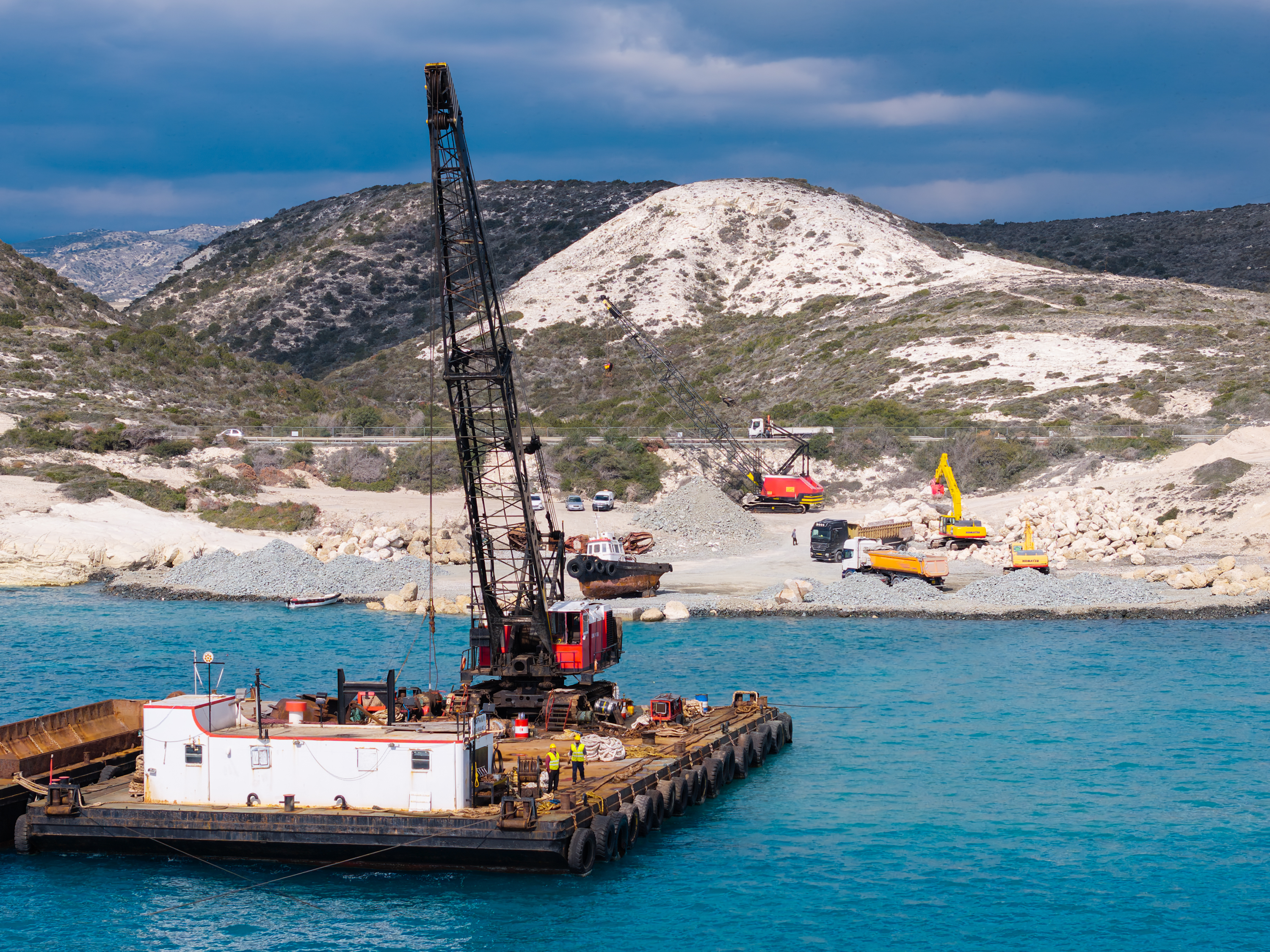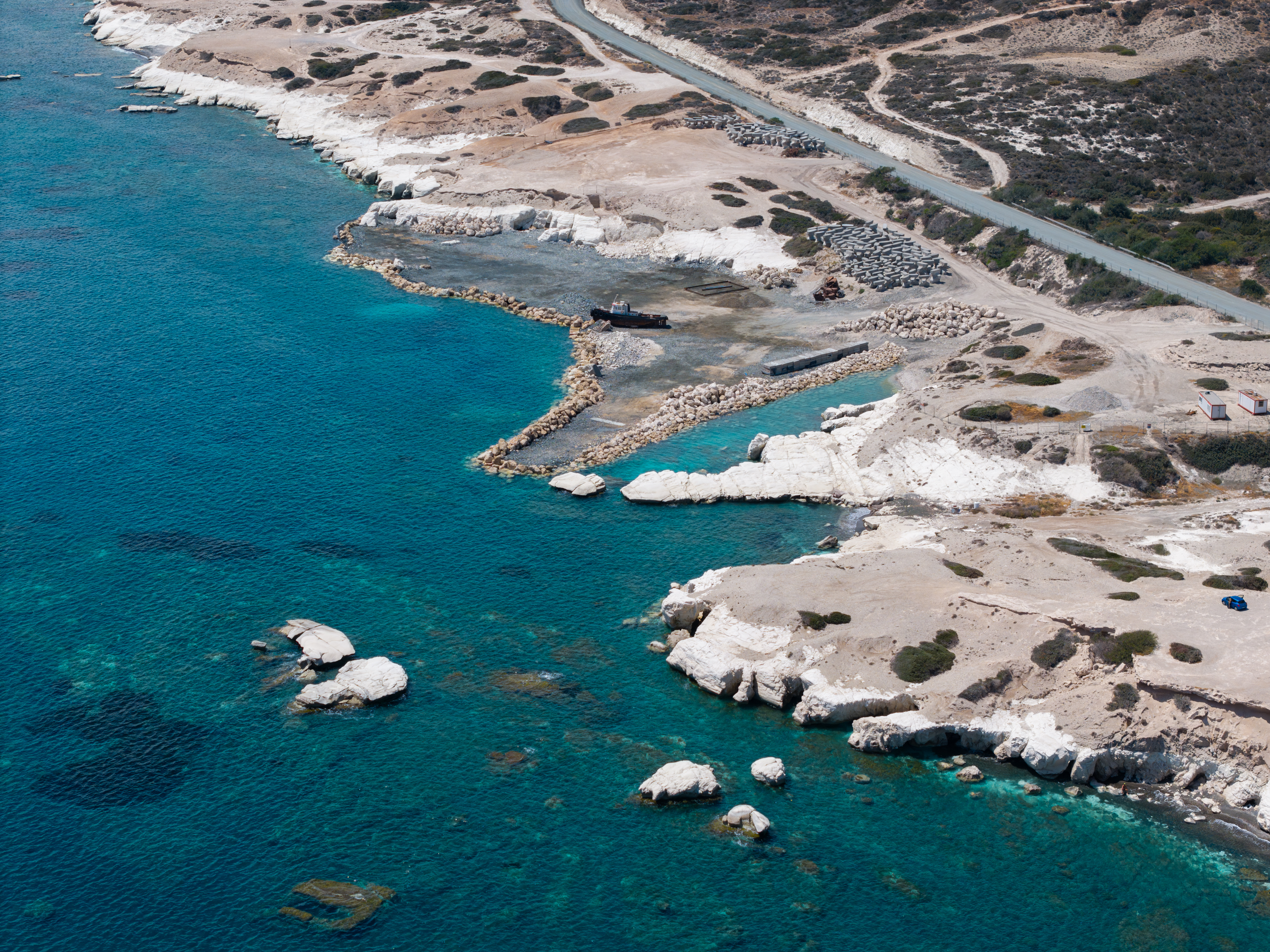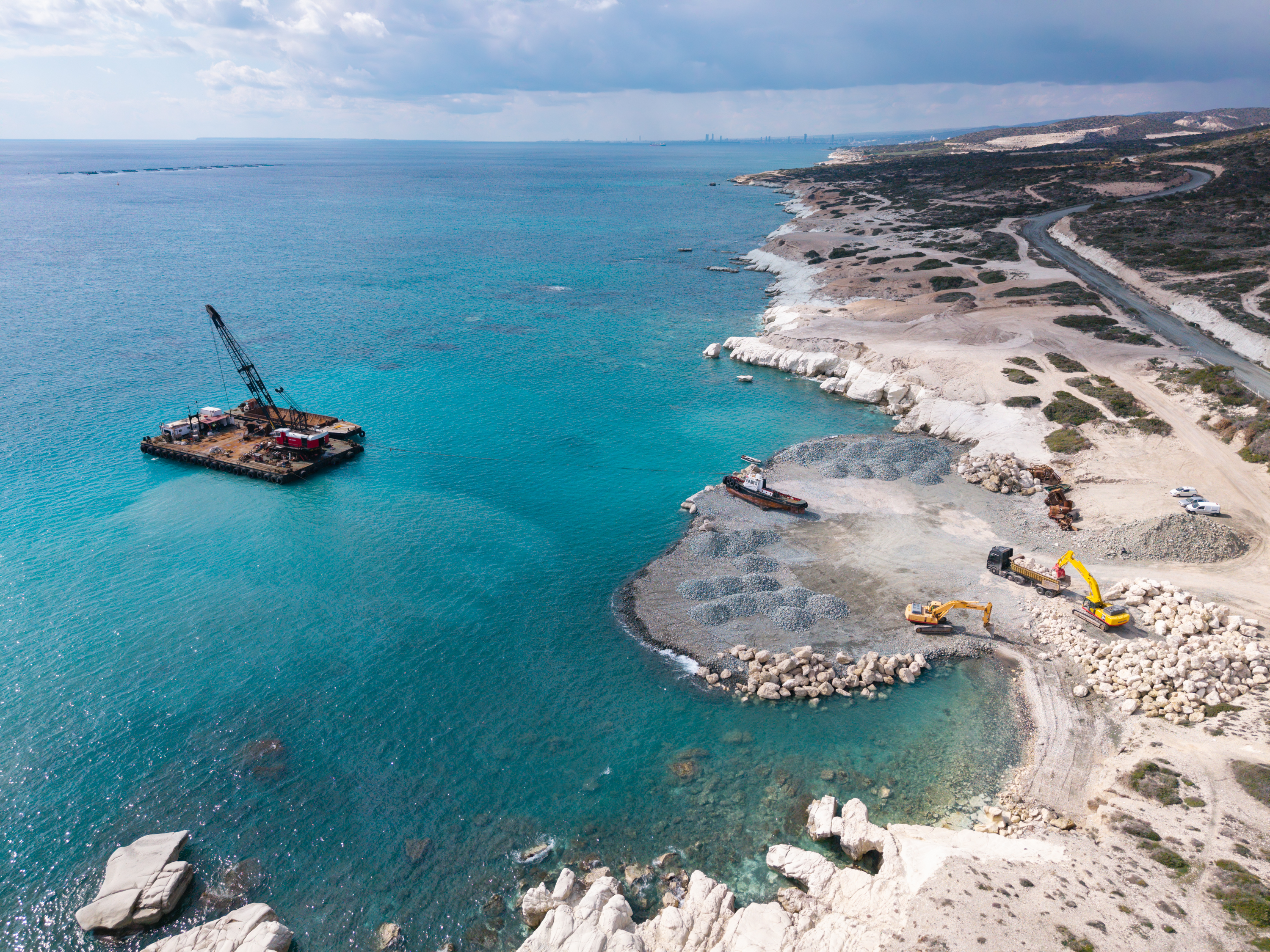Why NGO’s are fighting for the Pentakomo coastline
By Tassos Shialis
There’s a unique stretch of coastline on the southern shores of Cyprus that remains almost untouched. White limestone cliffs, sea caves shaped by centuries of waves, waters that shimmer in every shade of blue. People come here to swim in silence, kayak along the coastline, or simply sit on the rocks and relax. It is also here, among these rocks, that the endangered Mediterranean Monk Seal finds refuge – one of the rarest marine mammals in the world.
Today, this place stands at a crossroads.
A new port, designed to support fish farming infrastructure, is set to transform this coastline permanently. At 360 metres long, with extensive onshore and offshore development, it will divide one of the last remaining natural coastal stretches in Cyprus. Construction is already underway again, following the lifting of a temporary injunction that had briefly suspended the works following legal action taken by BirdLife Cyprus and Friends of the Earth Cyprus.
This is not about opposing progress, it’s about upholding environmental law, protecting public interest, and defending what science, policy, and common sense all tell us is irreplaceable.
We are seeking the annulment of the urban planning permit because the project was approved without carrying out the legally required Appropriate Assessment, despite being located near a proposed Natura 2000 site and directly within habitat critical to the Mediterranean Monk Seal. Under both EU law (Habitats Directive) and national law, such an assessment is mandatory for projects likely to have significant impacts on protected species or habitats.
This assessment, which would have examined the effects of dredging, noise, pollution, sea cave access, habitat deterioration, boat traffic and other associated pressures on the protected Monk Seal and the marine habitats found there, was simply omitted entirely from the environmental assessment and licensing process.
Ironically, the port is being co-financed by the EU’s Recovery and Resilience Plan, the very mechanism meant to foster sustainable development.

Cyprus is a signatory to the Aarhus Convention and a member of the European Union. These legal frameworks guarantee civil society access to environmental information, participation in decision-making, and access to justice in cases of potential harm.
These legal rights have been developed to ensure that decisions affecting nature, and by extension our quality of life, are made transparently, responsibly, and with proper scrutiny. In exercising those rights, and recognising our responsibility as NGOs representing civil society, we challenged the planning permit. In a rare and significant move, the Court accepted our legal standing and prioritised the case.
Although a temporary injunction was lifted on procedural grounds, the Court recognised the importance and time-sensitive nature of the case and has scheduled a fast-track hearing for late August. A decision is expected within months, an unusually swift timeline for Cyprus’ Administrative Court.
This is a clear signal: environmental cases cannot wait. When the threat is irreversible and the impacts significant, justice must be timely.
The Pentakomo case is not just about a coastline. It’s a test of how seriously we take our national and European environmental commitments. Do we value rare and protected species like the Mediterranean Monk Seal, or treat them as collateral damage? Do we plan responsibly and with foresight, or bulldoze through what remains of our natural heritage and without any consideration for the future generations? Do we treat environmental law as an obstacle, or as a guide for sustainable, nature-based solutions?
The Precautionary Principle, a cornerstone of EU environmental law, says that when there is risk of serious harm and there is lack of scientific certainty that a project or activity will not cause significant impact to the environment, then that project or activity should not be undertaken. This principle should have applied in this case.
Our legal challenge is not anti-development or an act of confrontation, it is a fulfilment of civic responsibility to ensure environmental protection does not just stay on paper.
It comes after years of monitoring, engagement with authorities, public communication, and expert consultation and advocacy. When other mechanisms fail to prevent irreversible damage, legal recourse becomes necessary.

More than €11,000 have already been raised thanks to donations by members of the public who support this case. That tells us something: this is not a niche issue. The people of Cyprus truly care about their natural environment, and they expect it to be defended – through environmental organisations, institutions, through science, and when needed, through the courts.
What happens in Pentakomo will echo beyond this coastline. It will show whether our institutions are prepared to put long-term nature protection above short-term financial profit.
Nature cannot speak for itself in a courtroom. That’s why civil society must.
To learn more about the campaign to protect Pentakomo, visit: https://www.givengain.com/campaign/pentakomo
Tassos Shialis is the campaigns coordinator for BirdLife Cyprus






Click here to change your cookie preferences